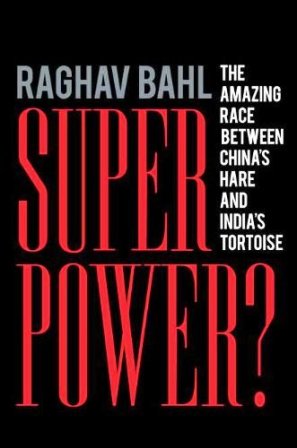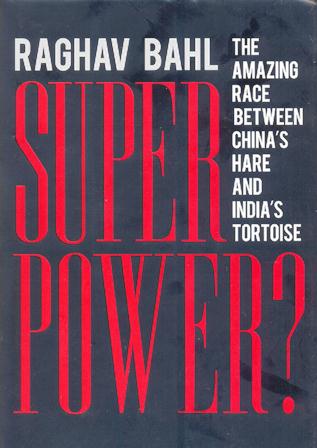-
Superpower?
In his career as a journalist and one of India’s top entrepreneurs, Raghav Bahl has often faced a barrage of questions from visiting businesspeople bewildered by India: Why are Indian regulations so weak and confusing? Why is your foreign investment policy so restrictive? How is it that you speak such good English? Inevitably, the questions are followed by the observation: But, you know, that’s not the way it is in China. Indeed, even as the two economies are together projected to dominate the world, there is a palpable difference in the way China and India work on the ground. China is spectacularly effective in building infrastructure and is currently investing almost half its GDP. Meanwhile, India is a ‘promising’ economy: more than half its GDP is consumed by its billion plus population; half its population is younger than twenty-five, giving it a unique demographic advantage; 350 million Indians understand English, making it the largest English-using country in the world In the race to superpower status, who is likely to breast the tape—China’s hare or India’s tortoise? For anyone looking to understand China and India and the ways in which these two nations are about to change the history of the world, this is the book to read.
-
Super Power?
Raghav Bahl is the founder, controlling shareholder and editor of Network18, India network which is home to CNN and CNBC in the country. It also publishes Forbes India. He has been instrumental in crafting successful joint ventures with such media giants as NBC Universal Viacom, Time Warner and Forbes. In a short span of seventeen years, Network18 has achieved a market capitalization in excess of US$0.75 billion. Raghav Bahl has over twenty-two years of experience in television and journalism. He won the prestigious Sanskriti Award for journalism in 1994, and founded TV18 (now Network18 Group) in 1993. A widely admired entrepreneur, Bahl was hailed as a Global Leader of Tommorrow by the World Economic Forum and selected by Ernst & Young as Entrepreneur of the Year for Business Transformation in 2007. This is his first book.


